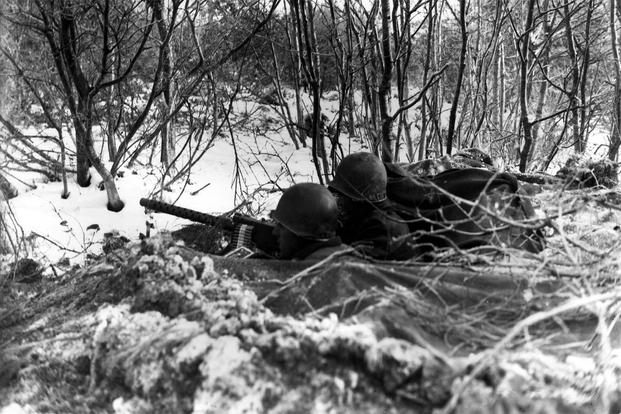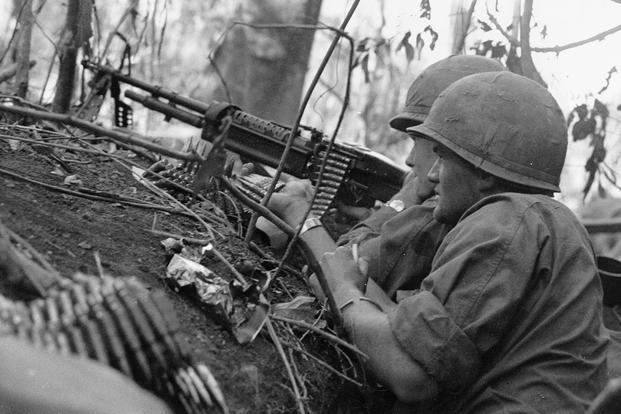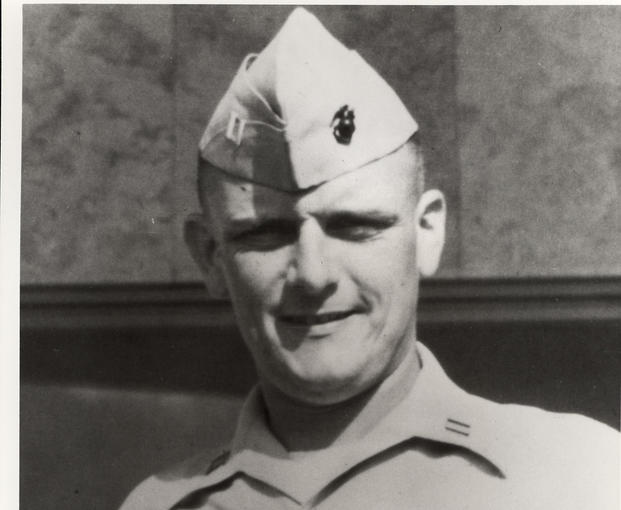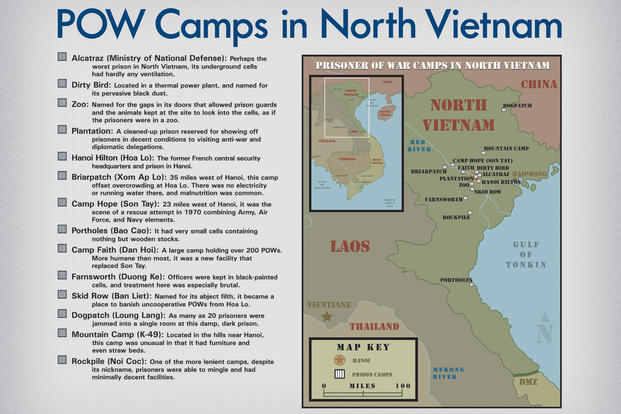At at a time when most people were shopping, preparing holiday feasts, and opening presents, these five heroes were dodging bullets and bombs while saving lives.
The Medal of Honor is the United States’ highest and most prestigious personal military decoration, and is bestowed to recognize U.S. military service members who distinguished themselves by acts of valor. The medal recipients profiled below received the Medal for their courageous feats during the holidays. Read on to learn about their remarkable stories.
He Ordered Mortar Fire on His Own Position
Peter J. Dalessandro, Technical Sergeant, U.S. Army, Company E, was with the 1st Platoon holding an important road junction on high ground near Kalterherberg, Germany, on December 22 in 1944.

After successfully repelling an initial assault, Sgt. Dalessondro found himself in the face of imminent death once again as the enemy was advancing on his position. He rushed to his forward position and immediately called for mortar fire.
After exhausting his ammunition, he crawled 30 yards towards the advancing Nazi soldiers to secure a light machine-gun, and fired upon the enemy at almost point-blank range until the gun jammed.
He managed to get the gun to fire one more burst, which used up his last round, but with these bullets he killed four Nazi soldiers who were on the verge of shooting a medic and two wounded soldiers in a nearby foxhole.
As the Nazi hordes swarmed about him, he was last heard saying, “OK, mortars, let me have it–right in this position!”
Sgt. Dalessandro was wounded, captured and held in a prisoner of war camp and was later released.
For his accomplishments, he became the second most-decorated veteran of WWII, with three purple hearts, two silver stars and one bronze star.
This Army Private Took Out Two Nazi Machine-gun Nests
On Christmas Day 1944 during the Battle of the Bulge, Army Private Paul J. Wiedorfer charged 150 yards across a snow- and ice-covered field under the hail of enemy fire, single-handedly knocking out two Nazi machine gun nests and taking 24 prisoners--and in the process he went from private to sergeant and platoon leader in one day.

"Suddenly something popped into my mind. Something had to be done, and someone had to do it. And I just did it. I can't tell you why," Wiedorfer told the Baltimore Sun in 2008.
Wiedorfer’s courageous act took place during the campaign for Bastogne, Belgium, when his company was pinned down by enemy fire at the edge of a forest.
Near noon, Wiedorfer realized his platoon could not advance until the two German machine gun nests were destroyed. His 150-yard charge over a fresh 3-inch snowfall was made in a crouched position and in a hail of enemy gunfire.
He came within 10 yards of the first machine gun nest and hurled a grenade that instantly killed several Germans. Then he jumped into the hole of the crew that he had just knocked out, quickly turned and emptied one clip at the second nest, killing three more soldiers and taking many prisoners.
Wiedorfer was given a battlefield promotion that afternoon to sergeant, and a few minutes later, after the platoon leader and sergeant were wounded, he assumed command and led his men forward.
His other decorations included the Purple Heart and Bronze Star.
He Attacked the Enemy with a Rock
Despite a Christmas truce during the Vietnam War in 1966, Army Staff Sgt. Delbert Jennings and the men of 1st Cavalry Division were attacked by a regiment of the North Vietnam Army. Jennings sprang into action, slowing the enemy’s advance with machine gunfire.

"He was literally all over the place, pulling men out of trouble, prodding others, rallying any man he could touch. That he escaped is a miracle," Brig. Gen. S.L.A. Marshall wrote several months later when he recommended Jennings for the Medal of Honor.
Despite a tenacious defense in which he killed at least 12 of the enemy, his squad was forced to the rear. After making sure his men were safely withdrawn, he killed an enemy demolition crew about to blow up a nearby howitzer and killed three enemy soldiers at his initial bunker position.
Ordering his men back into a secondary position, his rifle jammed while providing cover-fire for his men to withdraw. He engaged in hand-to-hand combat, killing an enemy soldier with the butt of his rifle, and when he stumbled, he lost his rifle. But that didn’t stop him; he picked up a nearby rock, as another enemy soldier attacked him, and smashed him in the head, killing him.
Jennings saw that his men were unaware of the enemy advancing from the rear. He raced through a barrage of machine-gun fire area to warn the men, turn their fire on the enemy, and lead them into a secondary perimeter.
After helping to repulse the final enemy assaults, he led a group of volunteers well beyond friendly lines to an area where eight seriously wounded men lay.
Braving enemy sniper fire and ignoring the presence of booby traps in the area, they recovered the eight service members who would have probably perished without early medical treatment.
This Marine POW Gave His Food and Medicine to Others
While serving as an adviser to Republic of Vietnam Marine Division, Marine Captain Donald Cook was injured and captured by the North Vietnamese Army in 1964.

Fellow POW prisoners said that Capt. Cook not only assumed the role as a senior prisoner, which would bring about harsher treatment for himself, but he also routinely gave up his rations of food and medicine to fellow prisoners.
His citation, in part, reads:
“Giving more needy men his medicine and drug allowance while constantly nursing them, he risked infection from contagious diseases while in a rapidly deteriorating state of health. This unselfish and exemplary conduct, coupled with his refusal to stray even the slightest from the Code of Conduct, earned him the deepest respect from not only his fellow prisoners, but his captors as well.”
Unbeknownst to his captors, Cook also continued his study of the Vietnamese language in secret, but never spoke to them in their native tongue. Cook’s fellow POWs said their Marine leader seemed to have an uncanny ability to read their captors’ minds and always was one mental step ahead of them, much to the enemy’s aggravation.

Cook also successfully resisted the VC when they attempted to indoctrinate him and gain his cooperation. He gave the Viet Cong only “the big four and nothing more”: name, rank, service number and date of birth.
Cook was so close-mouthed, so hardcore, his captors never learned he was a Marine. A fellow POW summed up his resistance in one sentence: “If Captain Cook thought the Viet Cong were using his feces for fertilizer, he would have stopped crapping.”
After three years of malnourishment, the VC reported that Capt. Cook died of malaria in the highlands of South Vietnam near the Cambodian border on or about Dec. 8, 1967.
His remains have never been recovered. While in a missing status, the Marine Corps promoted him, along with his peers, to the terminal grade of colonel.
He Threw Himself on a Grenade
Private First Class Ross A. McGinnis, 1st Battalion, 26th Infantry Regiment, was serving as a .50 caliber machine-gunner in a Humvee during operations against insurgents in Adhamiyah.

On December 4, 2006 while his platoon was on mounted patrol to find a place to put a 250-kilowatt generator that would provide electricity for more than 100 homes, an insurgent threw a grenade from a nearby rooftop that landed inside their truck.
Pvt. McGinnis shouted “grenade” and dropped down the turret and used his back to smother it. With that, truck commander Sgt. Cedric D. Thomas counted down.
"I was like '3-2-1.' Just like that," Thomas said in a Los Angeles Times interview. "The truck filled with black smoke."
"If [McGinnis] wouldn't have blocked it with his body, there's no doubt that nobody would have escaped it," said the Humvee driver, Sgt. Lyle Buehler, who was wounded by shrapnel.
His fellow soldiers agreed, Pvt. McGinnis had time to jump from the truck but instead chose to selflessly save the lives of his fellow soldiers. McGinnis demonstrated Army grit, through and through, and when it mattered the most.
McGinnis was the fourth soldier to receive the Medal of Honor during the Iraq War, which was presented to his family following his death.
His citation, in part, reads:
“Private McGinnis made the courageous decision to protect his crew. In a selfless act of bravery, in which he was mortally wounded, Private McGinnis covered the live grenade, pinning it between his body and the vehicle and absorbing most of the explosion.”
McGinnis’ father, Tom McGinnis, said, “‘I guess about the only thing you're really going to remember about my son is that he did the right thing at the right time.”
After his death, McGinnis was promoted to the rank of specialist and was given the Purple Heart, the Silver Star, the Bronze Star and the Army Good Conduct Medal.
-- Sean Mclain Brown can be reached at sean.brown@military.com. Follow him on Twitter at @seanmclainbrown.





